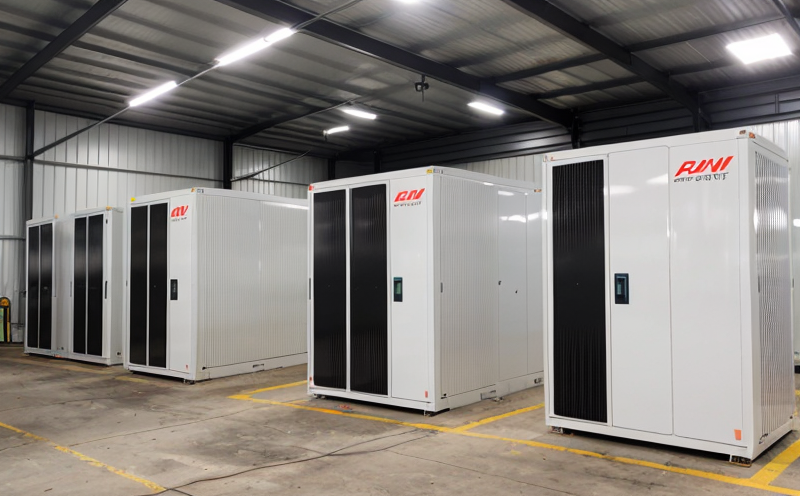UL 1741 Interconnection Testing of Battery Energy Storage Inverters
The UL 1741 standard is a cornerstone in the renewable energy industry, particularly for battery energy storage systems (BESS). This comprehensive service ensures that inverters connecting these systems to the grid comply with stringent safety and performance criteria. The testing process encompasses various critical aspects such as anti-islanding protection, power quality improvement, voltage regulation, and more.
Anti-islanding is a significant concern in renewable energy systems where an inverter can continue to supply power even when the main utility grid fails, potentially leading to dangerous situations for maintenance personnel. Our UL 1741 interconnection testing verifies that inverters are equipped with robust anti-islanding protection mechanisms compliant with the standard.
Another critical feature evaluated is the power quality improvement function. This ensures that the inverter maintains stable and clean power supply, meeting both grid stability and safety requirements. Voltage regulation tests verify the system's ability to maintain voltage within acceptable ranges under varying conditions.
The testing process begins with thorough preparation of the specimens, which include the battery energy storage inverters to be tested. This involves connecting them to a controlled environment that simulates real-world grid conditions. The apparatus used in these tests includes advanced power quality analyzers and simulation software that can replicate various scenarios.
The testing process is meticulous and covers multiple phases:
- Initial setup and calibration of the test equipment
- Connection of the inverter to the simulated grid
- Conducting anti-islanding tests under different fault conditions
- Performing voltage regulation tests across a range of input voltages
The acceptance criteria for UL 1741 testing are based on strict international standards, ensuring that all components meet the highest safety and performance benchmarks. Compliance with these standards not only guarantees the safe operation of energy storage systems but also enhances grid reliability and resilience.
Our team of experienced engineers ensures that each test is conducted with precision and accuracy, providing clients with detailed reports that outline every aspect of the testing process. These reports are crucial for quality managers and compliance officers to understand the performance capabilities of their inverters and make informed decisions about procurement and R&D.
The real-world implications of this service are profound. By ensuring compliance with UL 1741, energy storage systems can be integrated into the grid safely and efficiently, contributing to a more sustainable and reliable power supply. This is particularly important as the renewable energy sector continues to grow and evolve.
Environmental and sustainability contributions of this service are significant. By promoting safe integration of BESS inverters, we help reduce greenhouse gas emissions by enabling greater reliance on clean energy sources. Additionally, compliance with UL 1741 standards ensures that these systems operate efficiently, further reducing their carbon footprint.
Competitive advantage and market impact are substantial as well. Compliance with this standard can differentiate a company's products in the competitive renewable energy market. It assures customers of high-quality, safe, and reliable inverters, which can lead to increased market share and customer trust.





